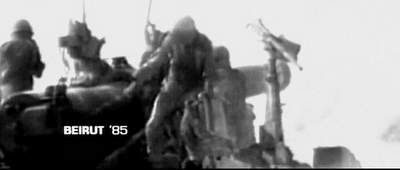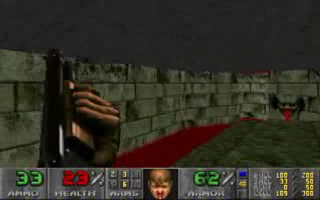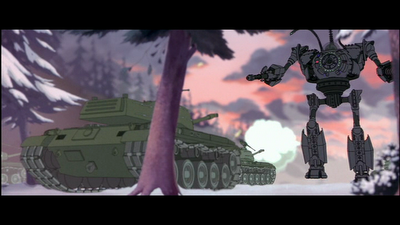the state we're in
 I keep coming back to thoughts about Lebanon. While I firmly believe that Israel has every right to destroy military assets which threaten its people, also I believe that their punitive strategy with its collateral damage will only result in a net increase of violent extremists.
I keep coming back to thoughts about Lebanon. While I firmly believe that Israel has every right to destroy military assets which threaten its people, also I believe that their punitive strategy with its collateral damage will only result in a net increase of violent extremists.But how do you solve a problem like Hezbollah? The Lebanese army is a multi-ethnic coalition of 38,000 soldiers with no jets or navy to speak of. These material limits are compounded by at least one-third of those soldiers being Shiite and presumably less willing to rout their fellow Shiites in the Army of God, much less try to remove from them their 'holy' armaments and disrupt the resistance. Israeli invasion would further make dissent from Hezbollah into treason to Lebanon. Already senior officials have promised to have Hezbollah's back if Israel invades. It has been much noted that Hezbollah is a part of the government, holding all of the seats from the south within the parliament and second only to Hariri's anti-Syrian bloc. Before they started lobbing Katyushas at Haifa in earnest, they would offer constituent services including health care. Meanwhile, the UN force sent to disarm Hezbollah in accordance with Security Resolution 1559 has made the job more difficult by having neither the power nor personnel to complete their task, ending up human shields. So what is Lebanon's responsibility to its citizens?
 This calls into question both the concepts of preventive war and that of the sovereignty of states. A pre-emptive war differs from a preventive war in the imminent nature of the threat, which mitigates deliberation. Thus pre-emption wars can be just, while preventive wars are considered violations of international law. But this still leaves huge questions as how to define imminent. John Kerry watched his foreign policy favorables vanish under a withering assault upon his suggestion of a 'global test' for pre-emptive war. During the Yom Kippur War, senior Israeli officials had the chance to pre-emptively strike Syrian forces, but refused to exercise this option for a more prosaic reason: Kissinger said if they did so, they wouldn't receive 'so much as a nail' from the US, aid which was vital considering European countries were too cowed by an oil embargo from the Arab states to help the Israelis.
This calls into question both the concepts of preventive war and that of the sovereignty of states. A pre-emptive war differs from a preventive war in the imminent nature of the threat, which mitigates deliberation. Thus pre-emption wars can be just, while preventive wars are considered violations of international law. But this still leaves huge questions as how to define imminent. John Kerry watched his foreign policy favorables vanish under a withering assault upon his suggestion of a 'global test' for pre-emptive war. During the Yom Kippur War, senior Israeli officials had the chance to pre-emptively strike Syrian forces, but refused to exercise this option for a more prosaic reason: Kissinger said if they did so, they wouldn't receive 'so much as a nail' from the US, aid which was vital considering European countries were too cowed by an oil embargo from the Arab states to help the Israelis.What is the world to do when states fail to defend its citizens, such as the ongoing genocide in Darfur? The UN has too many responsibilities with too little power to influence. This has lead to the prediction that its continued ineffectiveness will lead to private military companies (PMC) being hired to do what the Sudanese (or say, the Haitian or Somali) government will not or cannot. Effectively, this is also a trans-national military organization which is paid to be friendly. The state has had a monopoly on coercive force for only the past few hundred years, but even the US Constitution has provisions for employing privateers (or official pirates) and issuing letters of marque and reprisal.
 Raising a private army seems a feudal anachronism, but the motivation is more like A-Team anarcho-capitalism than Jolly Roger anarcho-primitivism. There is professional and academic disagreement about the exact range of services and/or activities a PMC provides, hence they are complex to define. Indeed most places have found the use of PMCs to be highly controversial, but yet they continue to increase in attractiveness to beleaguered states: on March 27, 2006, J. Cofer Black, vice chairman of Blackwater USA announced to attendees of the Special Operations exhibition in Jordan that his company could now provide a brigade-size force (1,500-3,500 operators) for low-intensity conflicts. According to Black, "There is clear potential to conduct security operations at a fraction of the cost of NATO operations."
Raising a private army seems a feudal anachronism, but the motivation is more like A-Team anarcho-capitalism than Jolly Roger anarcho-primitivism. There is professional and academic disagreement about the exact range of services and/or activities a PMC provides, hence they are complex to define. Indeed most places have found the use of PMCs to be highly controversial, but yet they continue to increase in attractiveness to beleaguered states: on March 27, 2006, J. Cofer Black, vice chairman of Blackwater USA announced to attendees of the Special Operations exhibition in Jordan that his company could now provide a brigade-size force (1,500-3,500 operators) for low-intensity conflicts. According to Black, "There is clear potential to conduct security operations at a fraction of the cost of NATO operations."The most prominent argument for their extensive use in Iraq has been as a cost-cutting measure although the opaqueness and favoritism of military contracts makes this assertion difficult to verify. Also supporters argue that it is easier to fire an incompetent company than to fire an incompetent general, plus competitors will compel good behavior. This brushes aside questions of accountablity to democratic institutions. Europe has only one legal private army, the Atholl Highlanders of Scotland. In organizational terms, even a group with a 'revolutionary' anti-capitalist ethos like FARC is more like a PMC than a political party.
 Why will we see more PMCs filing this gap? One theory is the rise of so-called fourth generation warfare (4GW): future conflicts will not be from internal revolutionary movements but transnational non-state actors who use failed dystopic states as bases to attack other states. We see this paradigm not only in Lebanon, but also between Somalia and Ethiopia and perhaps soon, Kurdistan and Turkey. This also explains a key difference between a group like al-Qaeda and Hezbollah: Osama remains as a powerful motivational speaker but his organization lacks the secure infrastructure needed to be an existential threat to its enemies, making it into more of a franchise for extremism; Hezbollah draws strength and recruits from a position within the population, 'swimming within the sea of people', as Mao said. And while it is certain Hezbollah is receiving funds from Iran and Syria, it is not clear that they are the catspaw of either nation. Iran could even be said to be cashing in its Hezbollah chips, seeing as they are unlikely to get a better chance. This calls into doubt whether Iran could seriously rein in Hezbollah even if it were in their interest to do so. It is a common and patronizing American attitude of underestimating foreigners: just look at how the US ignored the fault lines and schisms that marked China and Vietnam as independent from Moscow's machinations, even after numerous hostilities with each other.
Why will we see more PMCs filing this gap? One theory is the rise of so-called fourth generation warfare (4GW): future conflicts will not be from internal revolutionary movements but transnational non-state actors who use failed dystopic states as bases to attack other states. We see this paradigm not only in Lebanon, but also between Somalia and Ethiopia and perhaps soon, Kurdistan and Turkey. This also explains a key difference between a group like al-Qaeda and Hezbollah: Osama remains as a powerful motivational speaker but his organization lacks the secure infrastructure needed to be an existential threat to its enemies, making it into more of a franchise for extremism; Hezbollah draws strength and recruits from a position within the population, 'swimming within the sea of people', as Mao said. And while it is certain Hezbollah is receiving funds from Iran and Syria, it is not clear that they are the catspaw of either nation. Iran could even be said to be cashing in its Hezbollah chips, seeing as they are unlikely to get a better chance. This calls into doubt whether Iran could seriously rein in Hezbollah even if it were in their interest to do so. It is a common and patronizing American attitude of underestimating foreigners: just look at how the US ignored the fault lines and schisms that marked China and Vietnam as independent from Moscow's machinations, even after numerous hostilities with each other.States, of course, vary greatly in their conception of duties, from the caring coercion of the socialist Nanny State to the benevolent neglect of the minarchist Night Watchman State. The strength of the state is not the sole determinant of its resistance to these new transnational groups. Guns and tanks can't take the place of human intelligence in combating non-state threats such as the MS-13 street gang in the US. Even in a state like Pakistan, which is fairly well-educated with a robust military packing nukes, Islamic extremists can inflict suffering in other states, like with the recent Kashmiri extremist bombings in Mumbai. If you consider the effects of replacing the authoritarian regime there with Taliban clones, then they present a vastly more serious threat than the narcostate of Afghanistan.
Español | Deutsche | Français | Italiano | Português| Ch| Jp| Ko







0 Comments: